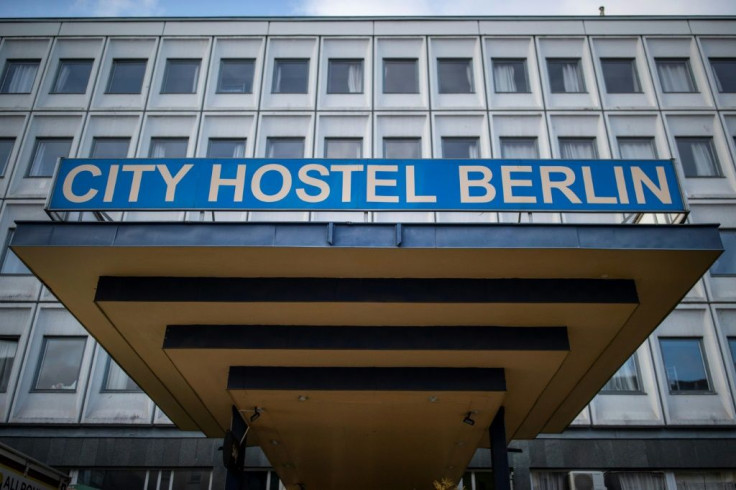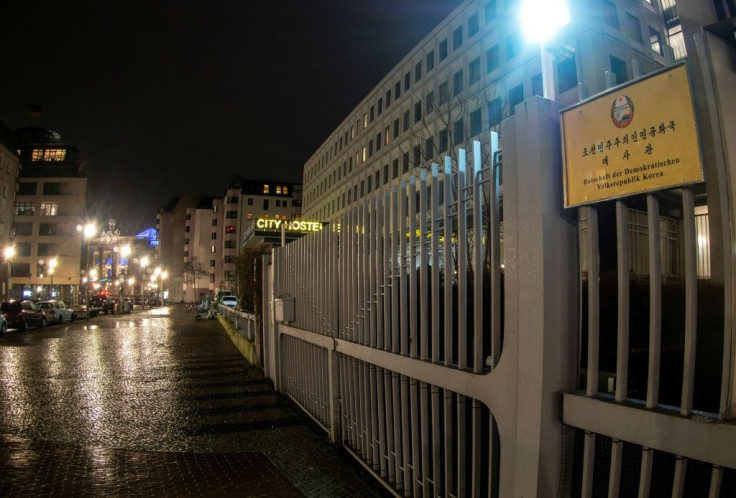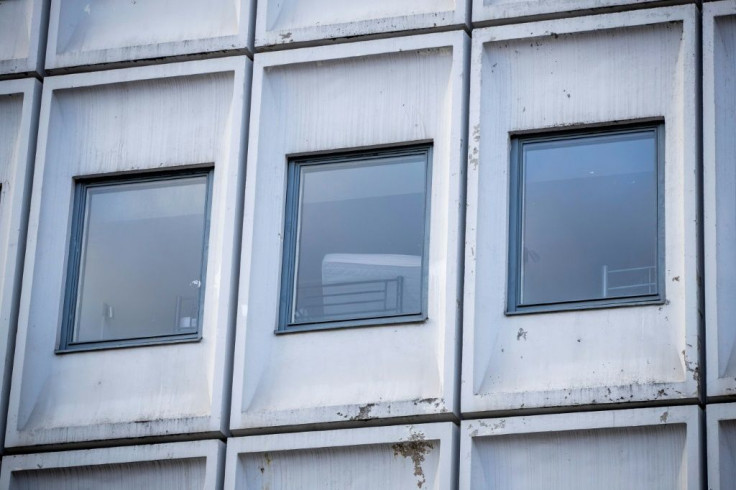Hostel At North Korean Embassy Must Close, Berlin Court Rules

The "City Hostel" in Berlin may look fairly innocuous from the outside -- but it now faces closure in an unlikely legal drama over international sanctions against North Korea.
Situated just a stone's throw from Checkpoint Charlie, the hostel offers cheap accommodation for backpackers visiting the German capital.
Yet for the last few years, authorities have been attempting to shut it down over accusations that it funds Pyongyang and the repressive regime of Kim Jong Un.
The hostel, which opened in 2007 and is run by a Turkish company called EGI, is located on the premises of the North Korean embassy.
On Tuesday, an administrative court in Berlin threw out an EGI lawsuit against the district authorities, who had ordered them to cease operations.
The court decided that the hostel contravened a 2017 EU directive implementing United Nations sanctions against North Korea.
"The hotel on the premises of the North Korean embassy... has to close," the court said in a statement, adding that EGI had the right to appeal.
Critics said the hostel paid the embassy -- and therefore the North Korean government -- around 38,000 euros ($42,000) a month to use the five-storey Soviet-Style building.
In a city where hotel prices have been rising sharply in recent years, the hostel offers a bed for the night at just 17 euros -- which perhaps explains why it is so popular, even with the North Korean flag flying next door.

Acquired by Pyongyang in the 1960s, the premises were used to host relatives of North Korean diplomats in the communist former East Germany.
Initially shut down after the fall of the Berlin Wall, the embassy reopened in 2001 and set about sub-letting rooms and parking spaces at the site.
"Nowhere else in the world has the North Korean regime earned so handsomely as in Berlin," wrote German daily Sueddeutsche Zeitung last year.
In 2017, local authorities decided enough was enough.
Backed by Chancellor Angela Merkel's government, they attempted to shut down the hostel on the basis that it was breaking international sanctions imposed on North Korea over its nuclear programme.

According to a 2016 UN Security Council resolution, North Korea's foreign representations are obliged to "restrict themselves to diplomatic and consular activities".
"Any kind of commercial activity on the site of the embassy or in relation to the embassy is prohibited," according to the German foreign ministry.
Referencing an EU directive based on the UN resolution, local authorities in Berlin's upscale Mitte district demanded the hotel stop using the building.
But the hostel's management, Turkish-based EGI, fought back.
Though they refuse to speak to media, EGI claimed it was "ready to use all methods available to us" to defend the guesthouse in a rare public statement in 2017.
That included legal action against the district authorities, which the court threw out on Tuesday.
EGI claimed that the local district does not have the jurisdiction to shut down its operations.
According to the court, they also claimed not to have paid rent directly to the North Korean embassy since April 2017.
Yet the court rejected these claims, saying that the very use of the building contravened the EU directive.
EGI's lawyers have not responded to AFP's attempts to contact them.
The hostel had remained open until now, despite lawmakers' best efforts.
"Sanctions and regulations concerning international trade have to apply to the North Koreans in Berlin," said Tom Schreiber, a Social Democrat MP in Berlin's state parliament.
The situation in the German capital is "a chance to show the regime which boundaries it cannot cross," he told AFP.
It could also provide "a model" for similar situations where North Korea's presence is "less visible", he added.
© Copyright AFP 2024. All rights reserved.




















